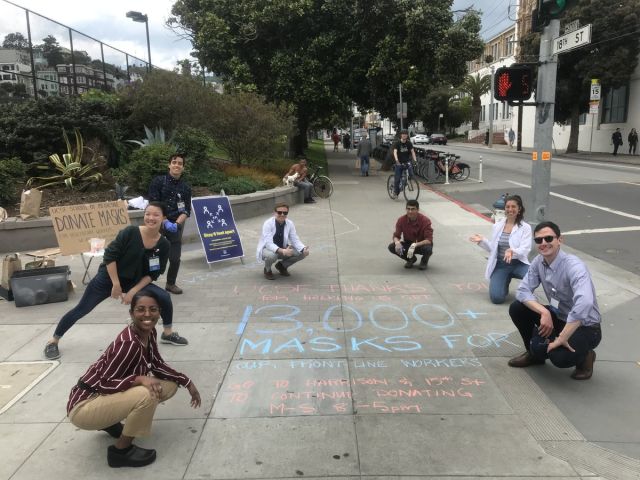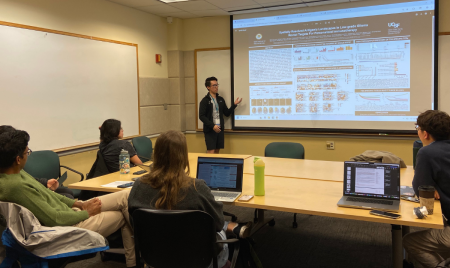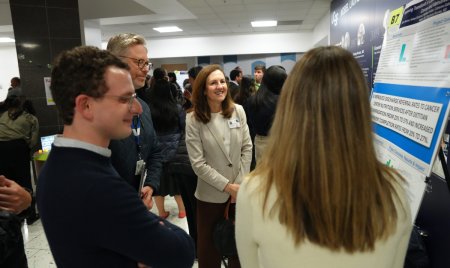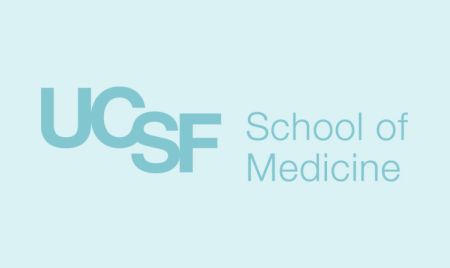Students, Staff Rise to the COVID-19 Challenge

students organize mask drive
UCSF School of Medicine students have coordinated two blood drives, developed health literacy materials, provided emergency child care services for the health care workforce, provided grocery delivery services via Meals on Wheels, participated in virtual and phone social visits with seniors at various community senior assisted living centers, to name a few. These efforts by students will not only directly benefit the patients, healthcare providers, and vulnerable communities most affected by COVID-19, they have also garnered attention from The Guardian, MSNBC, The San Francisco Chronicle, SF Weekly and The New York Times, among others. “We’re hoping to engage the community and protect our medical professionals on the front line,” said Francis Wright, a third-year medical student, quoted in SF Weekly.
"We’re hoping to engage the community and protect our medical professionals on the front line."
Frances Wright
Third-Year Medical Student
SF Weekly
UCSF Medical Student COVID-19 Response and News
- COVID-19: Lessons for Climate Change Strategy, American Public Health Association, May 18, 2020
- Can You Catch Coronavirus Swimming? What About 5G? Debunking Bizarre Myths, San Francisco Chronicle, May 10, 2020
- Emergency Blood Drives During the Covid-19 Pandemic: A New Model of Collaboration among UCSF Leadership, Medical Students, and a Community Partner, NEJM Catalyst, May 6, 2020
- As Some US Medical Students Heed Call to Action, Others are Sidelined Amid Pandemic, The Guardian, April 6. 2020
- As blood supplies run critically low, UCSF students organize emergency drive, The San Francisco Chronicle, March 27, 2020
- UCSF Med Students Donate 14,000 Masks to Local Hospitals, MSNBC, March 25, 2020
- Medical Students, Sidelined for Now, Find New Ways to Fight Coronavirus, New York Times, March 23, 2020
- San Francisco Medical Students Collecting Masks For Local Hospitals, SF Weekly, March 20, 2020
Medical education staff have also stepped up to address the crisis during trying times to ensure that future physicians continue to get the training and education they need to enter the workforce. Raquel Rodriguez is supporting students with their inspiring volunteer initiatives and Christian Burke is leading the transformation to a virtual learning environment.
Q&A: Raquel Rodriguez, Director, Center for Faculty Educators
As the Director of the Center for Faculty Educators, you don’t normally interact with students a lot, but you’ve been supporting their volunteer efforts. Can you tell us a bit about what you’re doing?
When this opportunity was brought to me by the Deans, many of the volunteer ideas were already compiled, but we needed to figure out how to operationalize them. I’ve been helping the student leaders facilitate conversations with appropriate leadership throughout the campus, including UCSF Health and ZSFG campus. Some examples of items I’ve helped with are ensuring that a review process of health literacy materials is followed, including translating documents about COVID-19.
UCSF students coordinating supply donations have gotten a lot of attention, are there other ways that medical students are helping?
Yes! In collaboration with Vitalant, a local blood collection agency, they’ve coordinated two blood drives to be held on various campuses, developed health literacy materials in various languages such as What is COVID19, developed videos like Myths and Truths about COVID19, provided emergency childcare services for the health care workforce, provided grocery delivery services via Meals on Wheels, participated in virtual and phone social visits with seniors at various community senior assisted living centers, to name a few!
Do you have any learnings from working on something that is very new to you that you could share with the team?
I might not consider this a new learning, but this level of direct interaction with our students has given me firsthand experience of how AMAZING and COMMITTED our students are! Also, the exposure to the various departments and processes throughout the campus has been very informative.
Q&A: Christian Burke, Director, Technology Innovations
Much of the curriculum has gone remote. What does that actually mean in practice?
It's been pretty amazing. Everyone has stepped up to keep the curriculum going so our students can keep advancing. There are many lectures and dozens of small groups each week which usually happen in a classroom like setting and all these had to be converted to Zoom based activities. In a very short time, we went from using Zoom for meetings to having much of our first year learning activities take place online. The faculty, coordinators, and students all embraced this and made the change very quickly to keep the students learning and moving forward. The coordinators are very impressive with a big nod to Betsy Norton, Amy Yun, and others with Liz Austin supervising.
How has the team supported this?
The team has been developing best practices and training our teams in how to use Zoom then this all went big very fast. Jill Bond, Chantilly Apollon and Sam Chung are leaders in this area of online and remote learning. They meet with each instructor and course directors to train them and then are there for each session as it went live in Zoom to troubleshoot and coach them. Tim Galbreath is great at technical support for remote learning. He helped us do things in Zoom we didn't know were possible. Also, Gina Merriwether volunteered from her role in the Post Bac program to help and Joey Bernal volunteered from CME to help the team. Sam and Joey are doing R&D in ZOOM to meet the upcoming needs. I will say the biggest thing is everyone on the team is very passionate about making the best learning experience.
Your team is often seen as our Zoom experts. What is something you’ve learned since starting to work on this that you didn’t know before?
Zoom Bombing is one thing that's new to me. This is where an unwanted guest crashes your zoom session and tries to disrupt it (use a password). The other thing is that this experience is changing us all and I see more and more people wanting to use video conferencing in amazing ways. After all this settles down, we may continue to use video conferencing in new ways.
Get the latest updates, information, and Frequently Asked Questions on the COVID-19 UCSF Medical Education web page.









